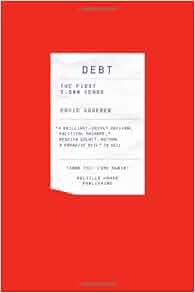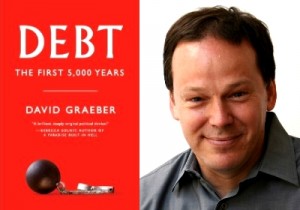

I'm happy to hear of opposing ideas when they are argued logically and without resorting to trickery, but the author uses a large amount of mixed and confusing philosophical debate to confuse, and imposes language with moral undertones to push his arguments: for example in his attempt to vilify clear quantization of values as we do through currency he calls the non-monetary solution "human economy" (the other one must be inhuman, right?). the author seems to have a clear agenda, of attacking capitalism & free market ideas, and to this end he's willing to use what I would call disloyal weapons. So, I'll start the review with the negative things, and then move onto the positive ones: As opposed to other books in which every moment was a learning and enlightening enjoyment this book was exhaustingly tense because I found it to be a very confusing mix of dangerous (but plausible) ideas written in a smart way, and interesting historical or world data. I would call this an interesting but dangerous book. We are still fighting these battles today without knowing it.ĭebt: The First 5,000 Years is a fascinating chronicle of this little known history-as well as how it has defined human history, and what it means for the credit crisis of the present day and the future of our economy. He also brilliantly demonstrates that the language of the ancient works of law and religion (words like “guilt,” “sin,” and “redemption”) derive in large part from ancient debates about debt, and shape even our most basic ideas of right and wrong.

Graeber shows that arguments about debt and debt forgiveness have been at the center of political debates from Italy to China, as well as sparking innumerable insurrections.

It is in this era, Graeber argues, that we also first encounter a society divided into debtors and creditors. He shows that for more than 5,000 years, since the beginnings of the first agrarian empires, humans have used elaborate credit systems to buy and sell goods-that is, long before the invention of coins or cash. Here anthropologist David Graeber presents a stunning reversal of conventional wisdom. The problem with this version of history? There’s not a shred of evidence to support it. Every economics textbook says the same thing: Money was invented to replace onerous and complicated barter systems-to relieve ancient people from having to haul their goods to market.


 0 kommentar(er)
0 kommentar(er)
